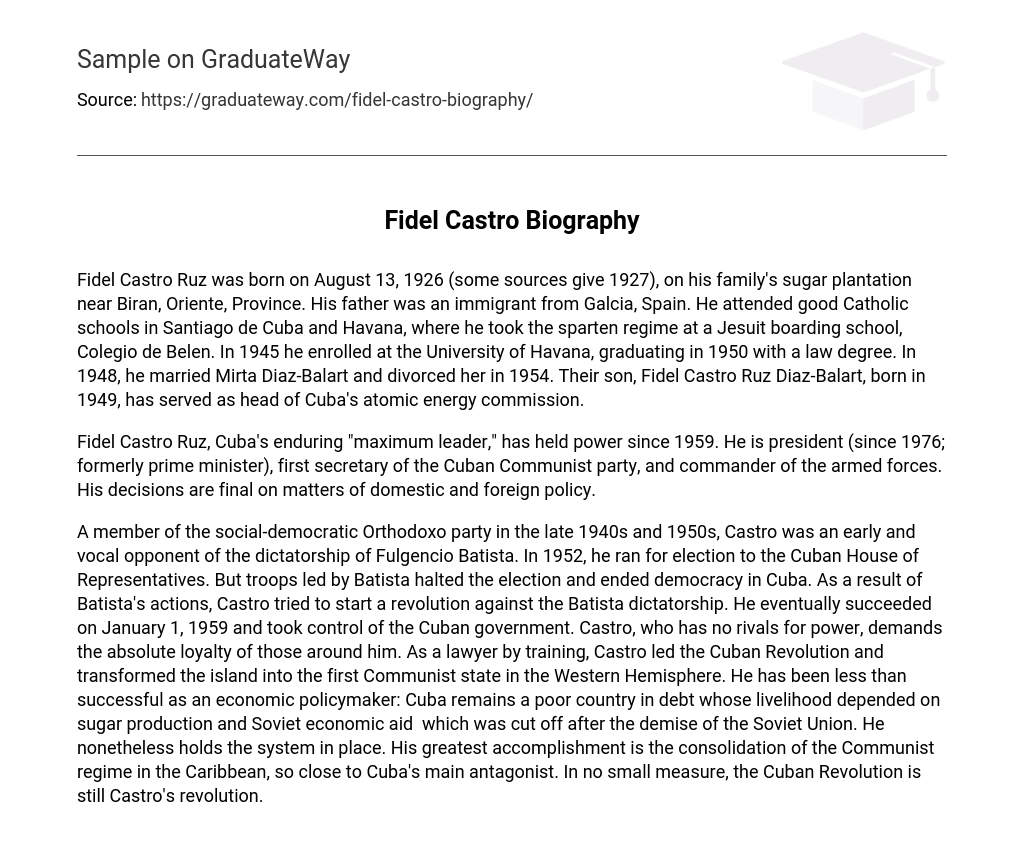Fidel Castro Ruz was born on August 13, 1926 (some sources give 1927), on his family’s sugar plantation near Biran, Oriente Province. His father was an immigrant from Galcia, Spain. He attended Catholic schools in both Santiago de Cuba and Havana, including a Jesuit boarding school called Colegio de Belen where he followed a strict regime. In 1945, he started studying at the University of Havana and graduated in 1950 with a law degree.
In 1948, he married Mirta Diaz-Balart and divorced her in 1954. Their son, Fidel Castro Ruz Diaz-Balart, born in 1949, has held the position of head of Cuba’s atomic energy commission.
Fidel Castro Ruz, the long-lasting leader known as Cuba’s “maximum leader,” has been in power since 1959. He holds multiple positions including president (since 1976; previously prime minister), first secretary of the Cuban Communist party, and commander of the armed forces. Regarding domestic and foreign policy, his decisions are authoritative and conclusive.
Fidel Castro, a member of the Orthodoxo party, was a vocal opponent of Fulgencio Batista’s dictatorship in Cuba during the late 1940s and 1950s. In 1952, he ran for election to the Cuban House of Representatives but the election was stopped by Batista’s troops, effectively ending democracy in Cuba. In response, Castro tried to start a revolution against the Batista regime. On January 1, 1959, he successfully took control of the Cuban government. Currently holding complete power, Castro demands absolute loyalty from his associates.
Despite being trained as a lawyer, Castro led the Cuban Revolution and turned Cuba into the first Communist state in the Western Hemisphere. However, his economic policies have mostly been unsuccessful leading to heavy reliance on sugar production and Soviet economic aid for Cuba. When the Soviet Union collapsed, this aid came to an end which worsened challenges like debt and poverty faced by Cuba.
Nevertheless, despite its close proximity to its main enemy (the United States), Castro has managed to maintain his grip on power and strengthen Communist rule within Cuba. The leadership provided by Castro played a significant role in bringing about the Cuban Revolution.





